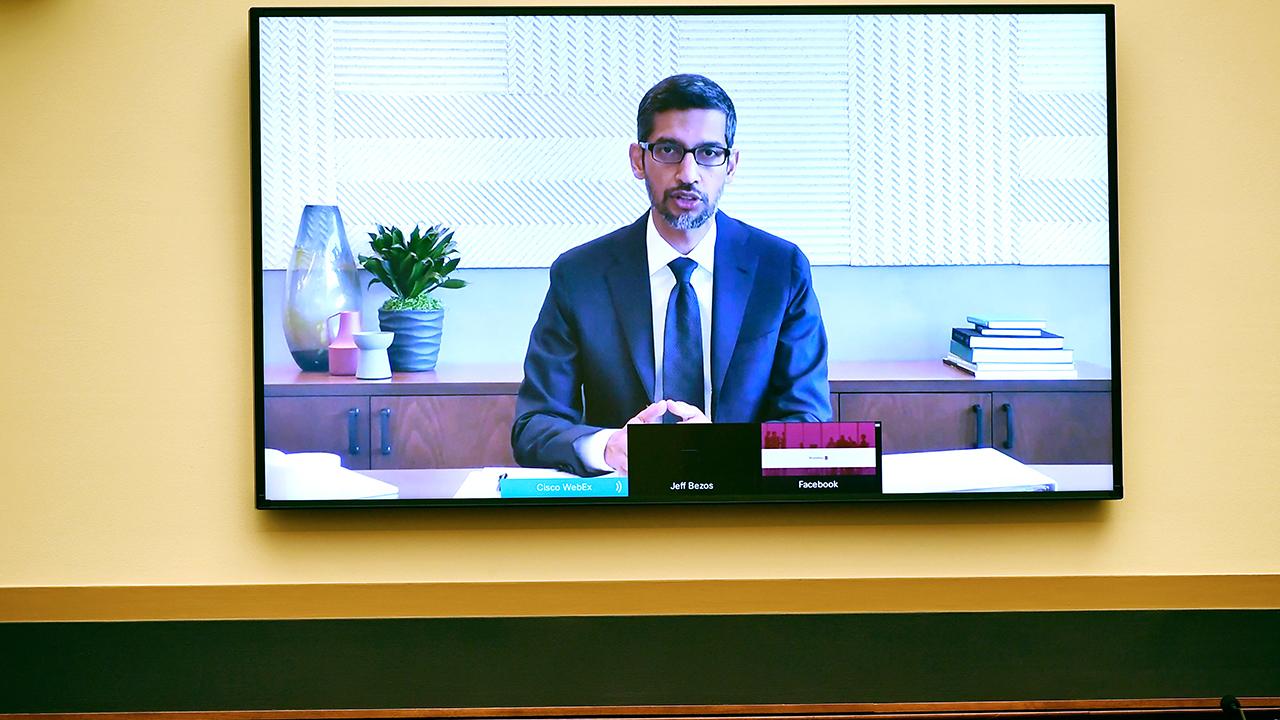Google CEO defends US military support, downplays work in China
The company has distanced itself from a couple of lucrative U.S. defense contracts following employee backlash
Google CEO Sundar Pichai came under fire from lawmakers on Capitol Hill during a highly-publicized hearing on Wednesday for the company’s decision to pull out of bids for lucrative government contracts following employee backlash – while still carrying on some operations in China.
When questioned about decisions to end a bid for the lucrative $10 billion Pentagon JEDI cloud contract and not to renew a contract for a drone initiative known as “Project Maven” following employee protests, Pichai said Google was still working with the government on a number of other contracts.
“We are deeply committed to supporting the U.S. military and the U.S. government,” Pichai told lawmakers.
GOOGLE WON'T RENEW CONTROVERSIAL DRONE PROJECT WITH PENTAGON AMID EMPLOYEE BACKLASH: REPORT
While the search giant’s CEO said leadership does take employee input into account when making these types of decisions, ultimately it makes choices based on a variety of factors.
Project Maven is an artificial intelligence program designed to use data captured by government drones to identify and track objects viewed on surveillance footage. Google workers were concerned about how the application could be weaponized once under the ownership of the U.S. military. Google decided not to renew its contract in 2018.
In October of the same year, Google withdrew from the race for the lucrative JEDI contract over concerns the job did not align with the company’s artificial intelligence principles.
GOOGLE PULLS OUT OF RACE FOR BILLION DOLLAR PENTAGON DEFENSE CONTRACT
Lawmakers asked Pichai why the company continued work with China if it had reservations about working with the U.S. government, to which the Google CEO said the company’s work in China is “very, very limited.”
Google is not, he said, working with the Chinese military. It does not offer a lot of features, like search and maps, in the country either.
Artificial Intelligence work is limited to a handful of open-sourced projects, he said.
GET FOX BUSINESS ON THE GO BY CLICKING HERE
Pichai also assured lawmakers the company is still working on cybersecurity projects with the Pentagon, as well as collaborations with the Navy and the Department of Veterans Affairs.
